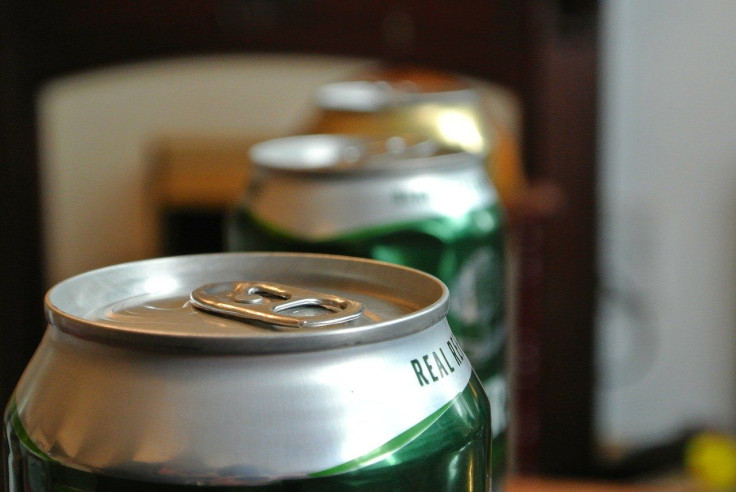Tapping A Beer Can To Prevent Fizzing Over? Study Says It Doesn't Work

KEY POINTS
- Tapping beer cans is a common technique people use to prevent the beer from fizzing over
- For a new study, researchers recruited volunteers to open beer cans, half of whom tapped the can before opening and half did not
- Researchers found no significant difference between the amount of beer lost whether the cans were tapped or not
- According to the researchers, the best technique to prevent or minimize beer spillage is to simply wait for bubbles to settle
Why do some people tap their beer can before opening it? It is believed that tapping a beer can would prevent the contents from fizzing over by releasing the bubbles that are stuck to the inside walls of the can. The idea is quite widely known, with some people preferring to tap the lid, while others prefer to tap the sides or the bottom of the can.
The question is whether the technique actually works, and that is exactly what the authors of a new study now available on arXiv sought to find out.
For the study, researchers from the University of Southern Denmark approached a local brewery to supply the beer for the experiment. Although the company had no involvement in the study, it provided the researchers with over a thousand 330-ml cans of beer.
The beers were weighed, chilled, then half were placed in a mechanical shaker for two minutes while the other half were kept as is. Volunteers were then asked to open the beer cans, half of whom were asked to tap the can three times before opening it.
The volunteers were unaware whether the cans they were opening were previously shaken or not, but researchers marked them at the bottom.
The cans were then weighed to see how much beer the cans lost after opening, and researchers found no significant benefit of tapping for both shaken and unshaken cans. Specifically, the shaken beer cans lost the same average amount of beer, whether they were tapped or not, and the case was similar for the unshaken cans.
“These findings suggest that tapping shaken beer cans does not prevent beer loss when the container is opened. Thus, the practice of tapping a beer prior to opening is unsupported,” the researchers wrote. “The only apparent remedy to avoid liquid loss is to wait for bubbles to settle before opening the can.”
The question now is why tapping did not work. According to the researchers, it is possible that tapping does not provide enough energy to actually remove the bubbles from the side of the can because the aluminum and the liquid absorb most of the energy.
Another possibility could be that the mere idea that the bubbles that cause foaming are attached to the side walls of the can is actually wrong. If the majority of the bubbles are actually in the liquid, then tapping the can is insignificant.
Lastly, it is possible that the bubbles are trapped in the liquid by the proteins that make beer creamy. If this is the case, then tapping might work for other fizzy drinks, but not with beer.
As for all the beer cans opened in the name of science, the researchers gave them away to university staff and students along with some snacks.
© Copyright IBTimes 2024. All rights reserved.






















